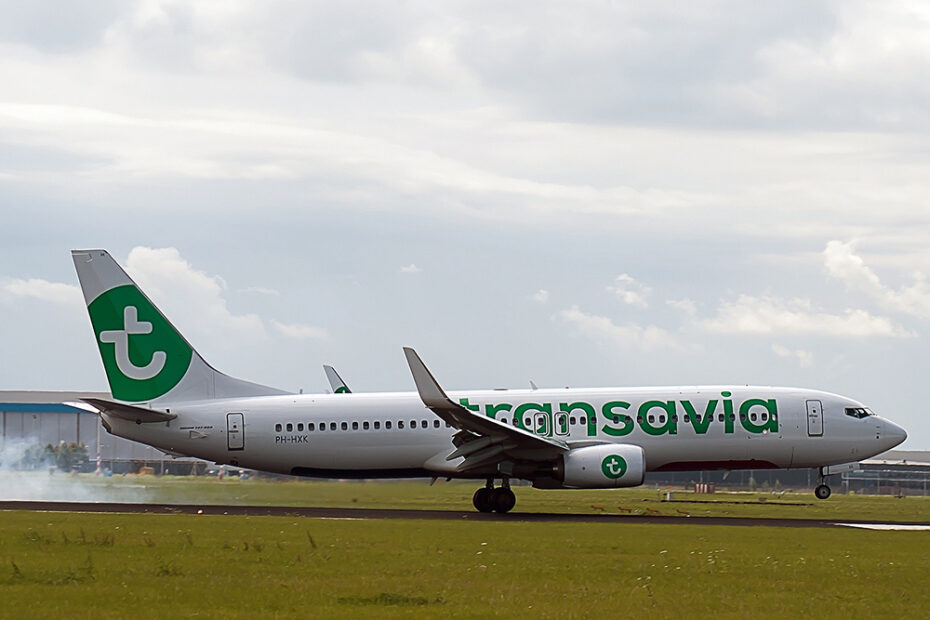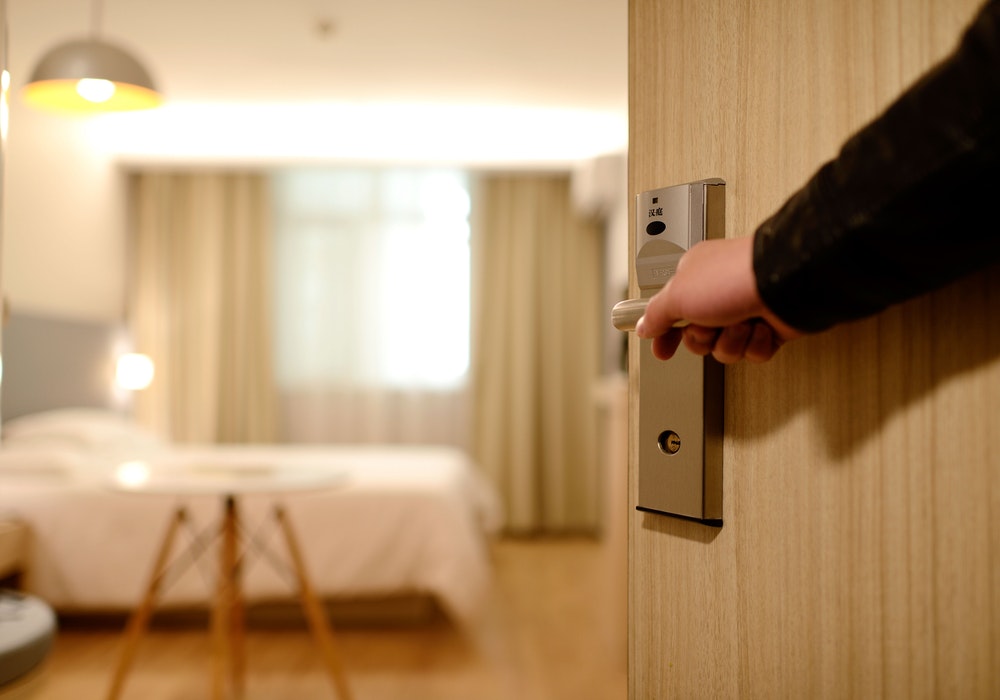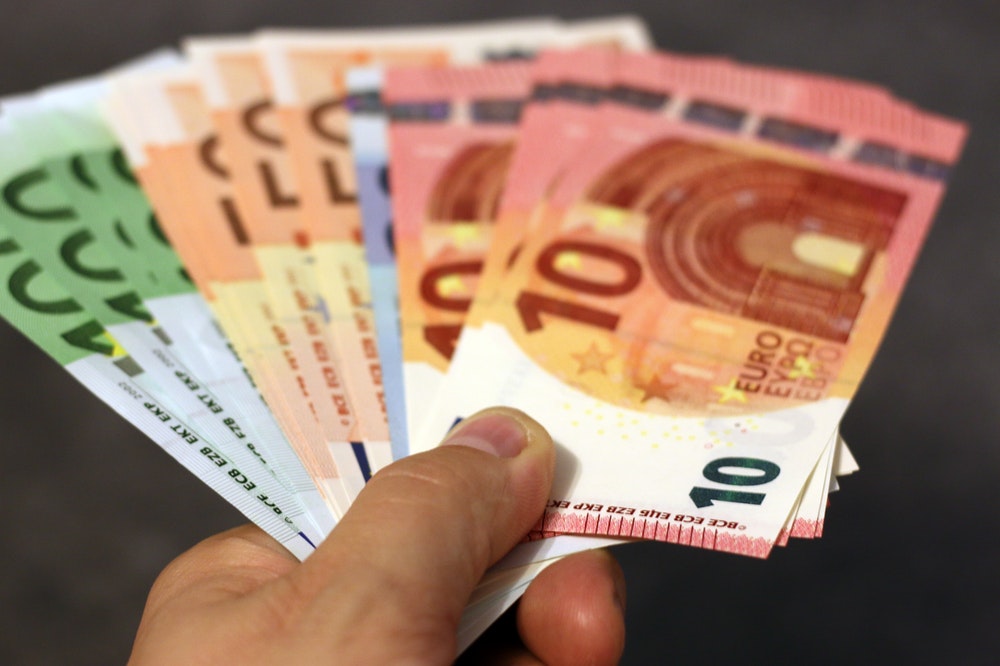Transavia strike compensation in the EU.
Are you eligible to it? If so, how much can you claim? What are the rules?
It is important to know that strikes are not always considered as extraordinary circumstances. If Transavia staff goes on strike and causes delays or cancellations of your flight, you may be eligible for flight compensation from Transavia. Also if a flight is disrupted due to a strike, passengers have a right to care. To claim compensation, you can either do it yourself or work with a flight compensation company.
All qualifying flights and passengers are covered by these rules.
1. Transavia Strike Compensation
The requirements for receiving Transavia strike compensation are straightforward.
The flight must have been delayed or cancelled altogether:
- You may be entitled to flight delay compensation if the delay is at least 3 hours beyond the scheduled arrival time. Delay time is measured from the moment the airplane doors are opened at the destination, allowing passengers to disembark.
- You may be entitled to receive Transavia flight cancellation compensation for a flight which is cancelled up to 14 days before the departure date. Flight cancellations like these are called “last-minute cancellations”. Please note that you may be eligible for a refund for the cancellation as well, not just compensation. If you don’t wish to be refunded, you can get a new flight to your destination.
Are you going to miss a connecting flight due to delay/cancellation?
Don’t worry – Transavia will book you on another flight for free.
Even though Transavia is a low-cost airline, they offer protected connecting flights that provide coverage in case of missed connections due to delay or cancellation of any of your flight legs.
See our guide to Transavia missed connection compensation.
By Europe and EU here on this page (and on this website in general) we mean all EU Member States, the United Kingdom (UK), Guadeloupe, French Guiana, Martinique, Reunion, Mayotte, Saint Martin (French Antilles), the Azores, Madeira, the Canary Islands, Iceland, Norway, and Switzerland.
1.1 Extraordinary Circumstances
Note that airline staff strikes, technical issues, and staffing shortages are not considered as extraordinary circumstances.
To avoid paying compensation, airlines sometimes falsely attribute flight delays or cancellations to extraordinary circumstances. This exempts them from making payments, which is beneficial for them. Therefore, it is important to verify any information provided by the airline to ensure it is accurate. Before accepting any information on flight compensation or refunds, it is advised to double-check it.
Or you can work with a flight compensation company to ensure that you receive appropriate compensation.
1.2 Right to Care
Whenever you have to wait longer than planned, you have a right to care.
If you experience a delay or last-minute cancellation, you have the right to receive care. This means you may be eligible for free services such as a meal and drink at the airport if you wait for three or more hours.
If the delay lasts for more than three hours during the night, you could also be eligible for free accommodation and airport transfers. Also Transavia is required by law to provide food and drinks to passengers based on their wait time. If you have not received any assistance, please speak to Transavia airport staff.
2. How to Claim Transavia Strike Compensation?
There are two ways to apply for Transavia strike compensation:
- Direct claim with Transavia: To seek compensation for a Transavia strike, you can contact the airline directly through their website and submit a compensation request via their customer support team. It’s essential to bear in mind that this process might take several months, and there could be negotiations involved to achieve a satisfactory resolution.
- Legal representation: Alternatively, you can opt for a more straightforward approach by seeking legal assistance. There are specialized companies in Europe that handle flight-related compensation issues on your behalf, alleviating any potential troubles. By filling out a single form, the compensation claim form, you can use their services. Our partners provide such assistance to passengers in need.
When choosing this option, here is all you will have to do:
And that’s it — the rest is handled by professionals.
* Your boarding pass and passport or ID copy.
Read more:
2.1 How Long Does It Take?
How much time does it usually take to receive compensation?
The process generally takes at least 2-3 months, although there are cases where it takes longer, especially if you file the claim independently and the airline ignores it.
Don’t expect it to be quick, so be patient during the process.
3. How Much Can You Claim?
The compensation amounts are fixed and range from €250 to €600.
These amounts are regulated by the EU regulations.
Here is how you can calculate the amount of your Transavia compensation:
When your destination is within the EU/UK:
€250
If the distance of your flight is
up to 1,500 km
€400
If the distance of your flight is between 1,500 – 3,500 km
When your destination is outside the EU/UK:
€250
If the distance of your flight is
up to 1,500 km
€400
If the distance of your flight is between 1,500 – 3,500 km
€600
If the distance of your flight is more than 3,500 km
3.1 Transavia Voucher Refund or Cash?
Many airlines offer vouchers instead of compensation.
When airlines have to provide compensation, they often give vouchers instead of cash refunds. This helps them save money, but you can choose to receive cash instead of a voucher. In the EU, it’s required by law for airlines to give cash or bank transfer refunds. So, always ask for your refund to be provided in this way.
4. Why Airline Employees Are Striking?
It’s not unheard of for airlines employees to go on strike, disrupting air travel and causing inconvenience to passengers. Strikes are not usually a spur-of-the-moment event; they usually happen when the employees and the airline management are at a stalemate in their negotiations, especially over issues like salary, job security, working conditions, and employee benefits.
Here are the reasons why airlines employees go on strikes:
4.1 Lack of Recognition and Benefits
One of the primary reasons for airline employee strikes is their lack of recognition and appreciation for the work they do. Many airline employees are overworked, underpaid, and have inadequate benefits.
Some employees may not receive medical insurance, vacation pay, or retirement plans, which makes them feel that their hard work is not appreciated. When negotiations between the employees and the airline management break down, the employees may go on strike to demand recognition and better benefits.
4.2 Safety and Working Conditions
Safe working conditions are paramount in the aviation industry.
However, in some cases, airlines may not give adequate attention to the safety of their employees, leading to unsafe working conditions. For instance, some pilots may not have enough time to rest between flights, which can impact their decision-making abilities, and cause accidents.
Cabin crew can also struggle with difficult working conditions, such as long and irregular working hours and passenger unruliness. In some cases, if the airline management consistently ignores concerns raised around occupational safety and working conditions, employees may resort to strike action.
4.3 Pushed for Results
Airlines are like other businesses, and they need to make a profit.
Sometimes, for airlines to achieve their financial goals, they may require pilots, crew, and other staff to work longer hours, which can lead to employee fatigue. However, if the airline employees feel that they’re being pushed too hard, they may choose to protest by striking. Airline employees have the right to work in an environment that’s reasonable, safe, and conducive.
4.4 Contract Negotiations
Contract negotiations can be a complex process, and a challenging negotiation process can cause tension between airline employees and the airline management.
Typically, both parties have different expectations around trading off issues such as salary, job security, and benefits, among others. If one side feels like it’s not getting a fair deal, they may choose the nuclear option of strike action. Unfortunately, when negotiations break down, employees may have no option but to strike to get their point across.
Transavia Strike Compensation: FAQ
My flight cost only €20 (or less). Am I still entitled to compensation?
Yes, because the price of the ticket doesn’t matter.
You are paid for the inconvenience. If your flight is delayed, cancelled or overbooked due to the fault of the airline, you might be entitled to compensation. It doesn’t matter how much did the ticket cost.
I don’t have travel insurance. Can I claim compensation?
Yes.
You don’t have to provide insurance documents when you claim compensation. If you are entitled to compensation, you can claim it without having an insurance policy.
Can my child/baby get compensation from Transavia?
Yes, they can.
If you are entitled to EU flight compensation, then your child will be too.
Even infants with a special infant ticket can get compensation.
Can I claim compensation for another person?
Yes, you can.
Even if you weren’t on that flight yourself.
As long as they provide you with all the paperwork (passport copy, boarding pass, etc.). Also they will have to sign documents Transavia and the flight compensation company may ask to sign in order proceed.
How far back can I claim flight compensation?
It depends on the laws of the country.
But the laws in Europe allow you to claim compensation even for old flights (that were 2-3 years ago). However, for the best results, we would recommend you to make a claim as soon as you return from your trip.
What to do if Transavia is denying my claim?
Transavia is refusing to pay compensation even though you are entitled to it.
What to do? There are two ways how you can proceed. If you want to finish the process yourself, contact the respective national enforcement body and ask them for assistance. There are national enforcement bodies in all the EU Member states.
Or you can hand over your case to a flight compensation company. They will finish the job.
EU – Non-EU Flights, Tourists
I’m flying to the EU from a country outside the EU. Can I get compensation?
If you’re flying with Transavia then yes, you can.
On all Transavia flights you are protected under the EU law. If your flight is delayed, cancelled or overbooked due to the fault of the airline, you might be eligible to compensation.
I’m flying from the EU to a country outside the EU. Can I get compensation?
If you are flying with Transavia, yes, you can.
I am not a European. Can I get compensation?
Yes.
The EU Regulation 261/2004 protects all passengers — tourists from overseas and Europeans alike.
Other Situations
Transavia provided me with a free hotel room and a free flight to my destination. Can I still get compensated for the delay?
Yes.
If you are eligible to compensation, you can get it even if the airline provided you with a free hotel stay and free replacement flight.
Transavia took me to my destination. Can I still get compensation?
Yes.
If you arrived at least 3 hours later than planned, and the delay was due to the fault of the airline, you can get compensation. Even if you were given a new ticket to your destination.
Have you ever had an experience with Transavia strike compensation or refund? Did Transavia pay the compensation in timely manner? Do you still have questions about Transavia compensation policies? Ask in the comments.


